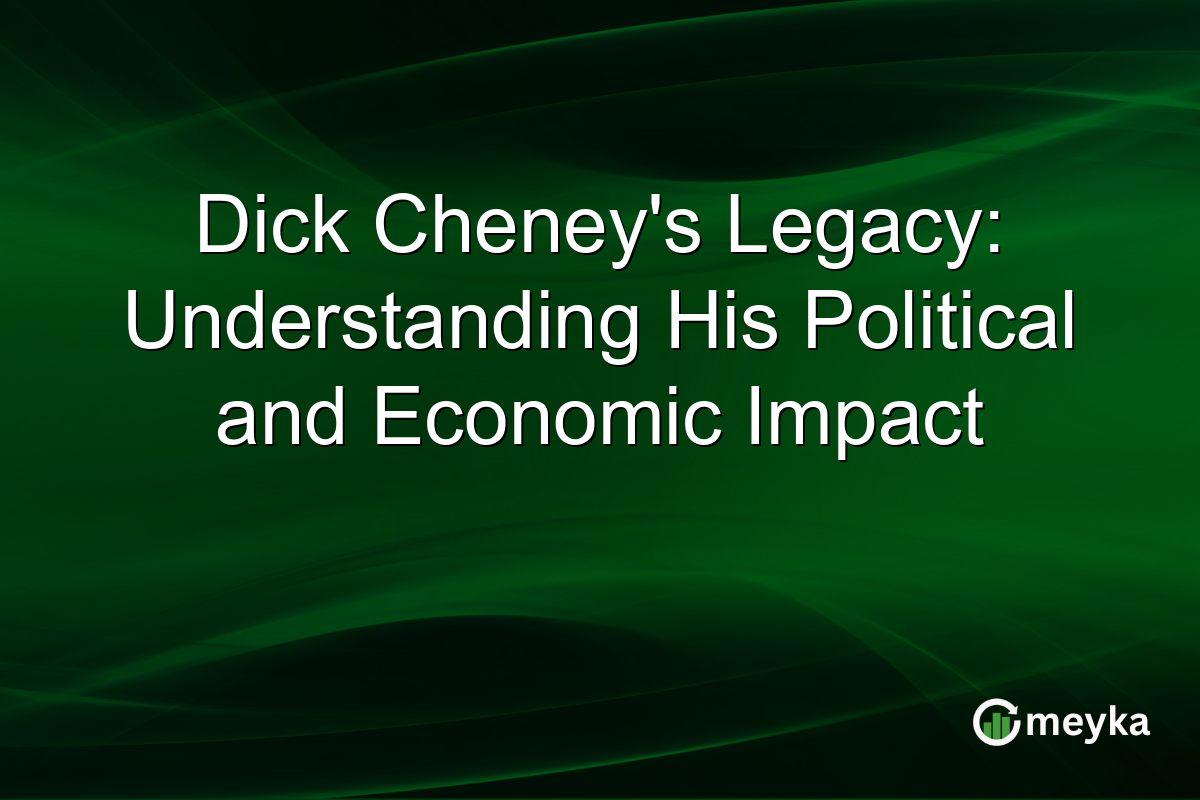Dick Cheney’s Legacy: Understanding His Political and Economic Impact
Dick Cheney’s legacy continues to spark complex discussions about his role in shaping U.S. policies. As former Vice President and CEO of Halliburton, Cheney’s influence extends into both political and economic realms. His role in the Iraq War and his impact on energy policies remain significant points of discussion for historians and political analysts. Understanding Cheney’s legacy involves delving into his political strategies and economic decisions that have left lasting effects on the nation.
Continue Reading on Meyka
This article is available in full on our main platform. Get access to complete analysis, stock insights, and more.
Read Full Article →





